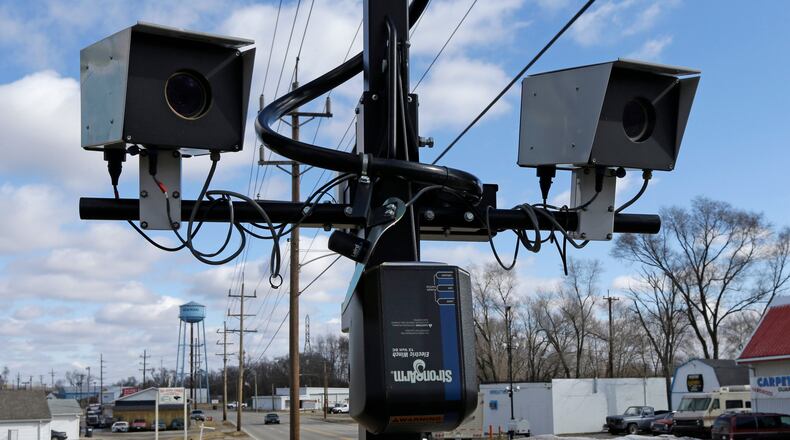“This case remains a valid “case or controversy” and the same factors that led this Court to originally accept jurisdiction remain. In the absence of a decision on the merits by this Court, municipalities will be free to design bare-bones administrative-hearing schemes that, like here, prevent citizens from meaningfully testing the evidence against them,” the motion reads. “Erroneous lower-court decisions will be left standing, a misapprehension about the meaning of this Court’s precedent reflected in those decisions will persist, and the due-process rights of Ohio citizens will be unfairly abridged.”
The crux of the case was whether the village’s now defunct, unmanned speed camera program which offered speeders due process, or whether it was unconstitutional and therefore about $3.4 million — including interest — should be repaid to about 33,000 drivers who were ticketed.
The process New Miami used was flawed, according to two Butler County Common Pleas court judges, because the administrative hearing process did not allow drivers to obtain discovery, subpoena witnesses, or question the people at Maryland-based OptoTraffic who calibrated the cameras and ran the program. The 12th District Court of Appeals decided it was fine, so the speeders took it to the Supreme Court.
Josh Engel, one of the attorneys on the case, told the Journal-News it would be a “long shot” after the high court dismissed the case Feb. 16. The court heard oral arguments in January and some justices asked whether they shouldn’t have taken the case at all. On a divided vote the high court decided they shouldn’t have.
“We owe it to all of the people who paid fines under an unconstitutional scheme to exhaust all possibilities,” Engel said. “Since this was a 4-3 decision, we are hopeful that one of the justices will see the injustice of the result.”
The court voted 4-to-3 to accept the case for review and by the same margin to dismiss it.
Justice R. Patrick DeWine wrote the dissenting opinion, likening the administrative hearing process to “a game of rock-paper-scissors” that was joined by justices Michael Donnelly and Jennifer Brunner.
“A decision by this court would provide the benefit of a resolution to the live controversy in front of us as to whether the plaintiffs are entitled to a refund of their traffic fines,” DeWine wrote in his dissent. “But more importantly, by reaching a decision on the merits, we could answer the important question whether a government may deprive citizens of property through an administrative scheme that provides as little procedural protection as this one.”
New Miami’s outside counsel James Englert said “this is a last gasp” and new punitive legislation has settled the matter.
“Many of the justices in oral argument were very interested in the effect on this case that HB 62 had, where the legislature sent all civil traffic violations to the municipal court,” Englert told the Journal-News. “That bill makes this case a one-off. Appellees have presented nothing new here to change the minds of those justices.”
He has until March 7 to file a response with the court.
The village has spent $468,538 fighting this case since 2013, but the village hasn’t received invoices for January or February yet. The litigation has taken three visits to the 12th District and two visits to the Supreme Court, where jurisdiction was denied. New Miami challenged the lower court’s rulings on class action status twice and a sovereign immunity issue. Until Common Pleas Court Judge Michael Oster issued his final judgment, the village could not appeal the entire case.
Part of the reason the justices dismissed the case is because the state legislature essentially settled the issue with new laws that make it virtually impossible for municipalities to deploy the speed catchers.
The village was forced to put the brakes on the program in the summer of 2019 when the state transportation bill passed that year, it reduced the amount of state financial aid local jurisdictions receive if they use speed cameras and added a new wrinkle mandating the courts handle speed camera citations as civil proceedings that include court fees and costs that would have exceeded what the village collected in fines.
The village sued the state over the new law and the case has been pending since March 2020.
About the Author

